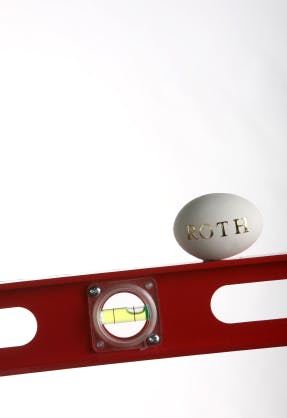As if the Roth vs. pre-tax 401(k) contribution decision isn’t enough already to cause confusion for employees, now the IRS has allowed employers to offer in-plan Roth rollovers for eligible rollover distributions.
As part of the Small Business Jobs Act of 2010, employees can take advantage of this opportunity for distributions made after September 27, 2010 if their employer adds the in-plan Roth rollover option through a plan amendment. Plan sponsors of a 401(k) or 403(b) were able to add the feature in late 2010, and a 457 government plan may adopt an amendment to include a designated Roth account for in-plan Roth rollovers after December 31, 2010.
This new option will give employees the ability to convert pre-tax balances to their designated Roth account with their 401(k) plan as long as the funds are eligible rollover distributions. The amount will be considered taxable income, but will not be subject to the 10 percent early distribution penalty.
Who benefits from this option?
If an employee chooses to take advantage of the in-plan Roth rollover, they will need to be prepared to pay the cost since this will add to their overall taxable income, and the distribution is not subject to the 20 percent mandatory withholding by their employer. The IRS recommends that the employee should increase their withholding on the W4 or make an estimated tax payment in order to avoid an underpayment of tax penalty.
So which employees may benefit from this new option?
- Those that feel they are in a lower tax bracket now than in the future, such as a young employee just starting their career climb, may save on taxes in the long run. However, since we don’t know where tax rates will be in the future this decision can be subjective.
- High net worth employees that are concerned about estate planning. In 2011, any estate over $5 million is subject to a 35 percent federal estate tax and a pre-tax 401(k) transferred at death would also be subject to federal income tax. By completing an in-plan Roth rollover, the employee would be reducing her overall net worth by the amount of tax paid on the rollover and the beneficiary would receive the Roth inheritance income tax free.
Will we see this as a widely accepted option for retirement plans? Probably not, since only 31 percent of 401(k) plans currently offer a Roth account and of those, only 7 percent of 401(k) investors with access to a Roth 401(k) use it, according to www.401khelpcenter.com.
But if your company is planning to add the in-plan Roth rollover, it should be accompanied by customized financial education so your employees are aware of the pros and cons and any tax consequences they may face.
This was originally published on the Financial Finesse blog for Workplace Financial Planning and Education.
